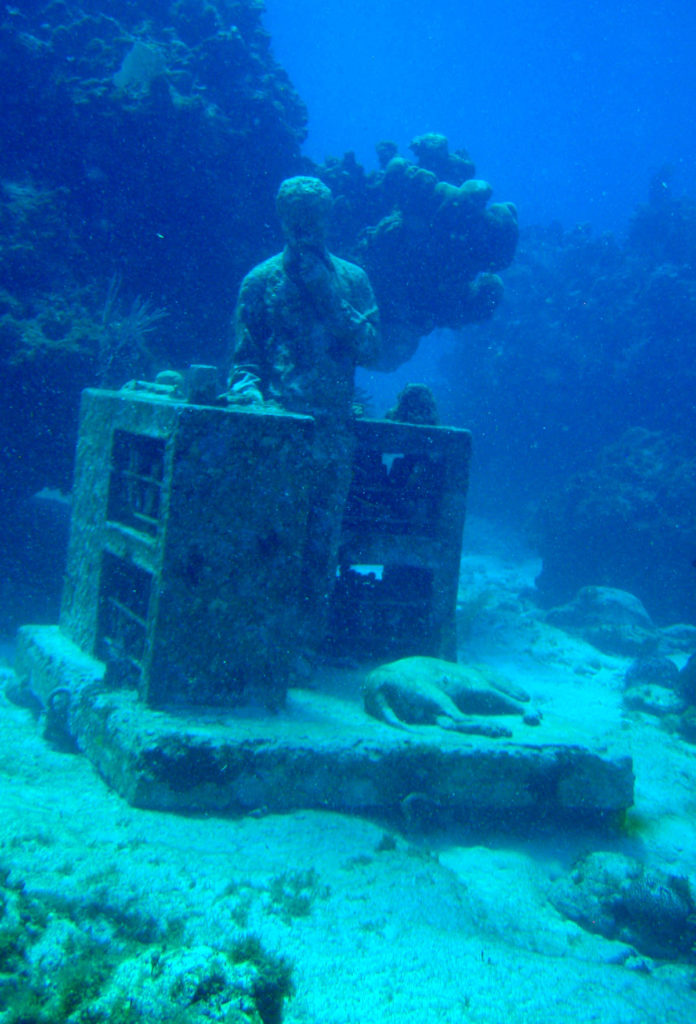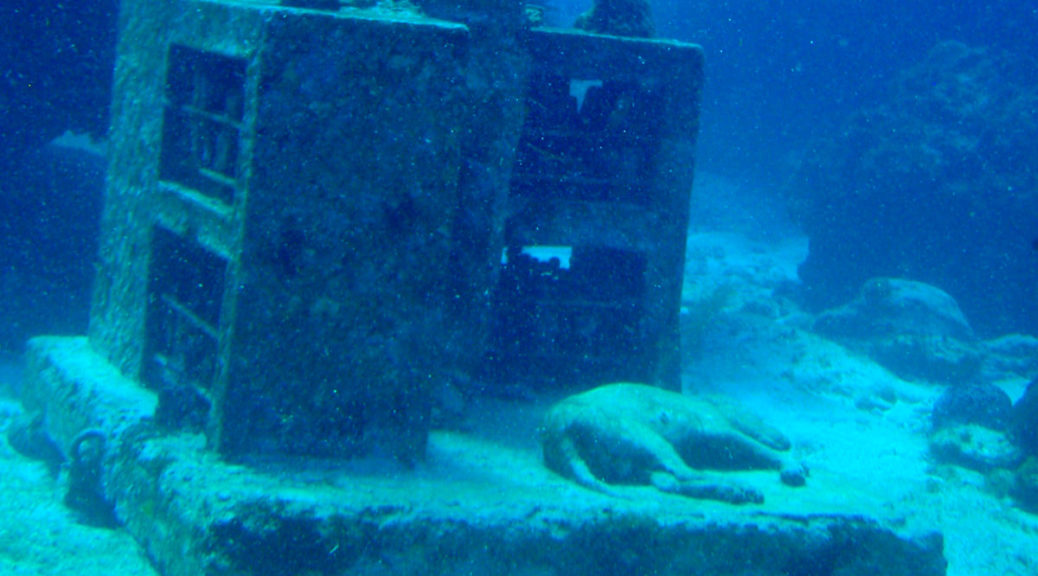It was decades ago, but I still remember the German guy. He could have ignored the pups, left them to die in the brush, but he didn’t. Instead, he biked into town and found the local police, but they just blew him off. So he went back. It was the compassionate thing to do, but it left him with an impossible choice: either let the pups die, or kill them.
My girlfriend Mardena and I had come to Cancún, Mexico, from a winter deep-freeze in the United States. We were staying in a little hotel on a downtown side street, a mile inland from the city’s glitzy beachfront hotel zone. Every morning I’d head out for an early run to beat the heat, but it never worked. Even at dawn, the heat and humidity were already draining. I remember one evening when Mardena and I were on the bus heading back to our hotel after a day on the beach. I looked out the window and saw the sun sinking into the horizon like a giant orange beach ball. It was the end of December, on one of the shortest days of winter, and it was still hot as blazes.
One morning we took a boat from the mainland over to Isla Mujeres, a skinny island a few miles east of Cancún. We planned to bicycle around the island and cool off in the turquoise waters at its north end. The day was heating up fast, so we stopped at the first bike shop we found, rented clunky one-speeders at two dollars apiece, and started out along a coastal road.
The road had hills that made peddling in that heat a chore. As usual, I’d underestimated how much drinking water we’d need; we’d drunk too much of what we had before we’d even gone a mile. Luckily, just past the outskirts of town, we came across a boy selling soda pop at a stand he’d set up beside the road. We bought Cokes, finished them quick, and started off again.
After about an hour, we reached the far end of the island. We stopped to explore a small Mayan temple perched on a jut of land and rested a while in its shadow. Then we climbed back on our bikes. By then, my clammy T-shirt felt pasted to my skin. We hadn’t seen a single bicycler or car on the road.
We started up the other side of the island. Here, the island faced open ocean, and the water was wilder, the breakers pummeling the rocky shore. To the right of the road, scrubby, ankle-high vegetation reached over to some cliffs that dropped off onto tumbles of craggy rocks.
Before long, Mardena and I had finished off our water and were grinding away, ignoring the ocean views, intent on just getting back to town. Halfway back, we came over a rise and saw up ahead a lanky figure standing alongside the road. His bike lay on the gravel beside him.

He waved us down, and we stopped to talk. He was a sandy-haired young man, probably in his mid-twenties, dressed in gym shorts, a graying white T-shirt, sneakers, and a baseball cap. He was from Germany, he said, but he spoke English with hardly any accent. He seemed distressed. He told us that while he’d been biking past this spot, he’d heard squealing off in the brush. When he’d walked over to investigate, he’d found a litter of newborn puppies huddled in the foliage, abandoned and dying in the heat. He’d biked into town, tracked down the local police, and told them what he’d found. They’d just blown him off, he said, so he’d come back.
“I don’t know what to do,” he said. His voice was high-pitched, almost shrill. “They’re dying. I wonder would it be better to throw them off the cliff and kill them.”
We followed him into the vegetation. Tucked together in the tangle of plants were five tiny, practically hairless pups, so young their eyes hadn’t opened yet. They were putting up a chorus of squealing, their heads poking into the air.
There was no sign of their mother. In that merciless heat and sun, with no shade anywhere, they wouldn’t last long.
The young man was paralyzed with indecision. He seemed to want us to tell him what to do. But we didn’t know what to say. We didn’t have any way of carrying the dogs. He’d already tried the police, and there was no one else on the road. The pups were suffering in the extreme heat. Killing them outright might seem like the humane thing to do, but it wouldn’t be like taking a terminally ill pet to a veterinarian’s office and having the vet do the job. He would have to kill them himself. And if he threw the pups off the cliff, was there any guarantee that hitting the crags would kill them? It seemed possible that some might survive the impact and end up flailing around in the surf, bones broken, drowning slowly.
My memory is that we took off before long, leaving the young man to struggle there alone. When we got back to town, we returned our bikes, found a café, and drank a couple bottles of juice. Then we walked to the beach at the edge of town and cooled off in the water. I don’t remember that we ever talked about the incident.
A few things from that day have stuck with me through the years, though, and occasionally I’ll find myself returning to the memory. Maybe I’ll listen to “Just Like Tom Thumb’s Blues,” a song by Bob Dylan about a Mexican border town Dylan visited, and a few of its verses will bring to mind the young man pleading in vain with the Isla Mujeres police: “If you’re lookin’ to get silly / You better go back to from where you came / Because the cops don’t need you, and man, they expect the same.”
Sometimes I’ll think about why I felt so little urgency about the doomed pups. Was it because they weren’t people, they were “only” animals? Maybe, but more likely, I think, it was because the choice seemed so hopeless that I just wanted out of there. I couldn’t imagine leaving the pups to die in that beating sun, but I also couldn’t imagine throwing them off the cliff. So I left.
Mostly, I remember the German guy. Having found the abandoned litter, he had gone for help and failed to get it. Then he had made the conscious decision to come back, feeling a sense of responsibility for the pups. It was a testament to his decency, but it left him anguished.
He was hoping we’d help him decide, and we failed him in that regard. Yet he never tried to unload the burden of that decision onto us. “I don’t know what to do,” he told us. He knew it was up to him.
All these years later, I still wonder what he did.
Paul Michelson Paul Michelson lives and writes in Davis, California.
- Follow us on Twitter: @inthefray
- Comment on stories or like us on Facebook
- Subscribe to our free email newsletter
- Send us your writing, photography, or artwork
- Republish our Creative Commons-licensed content

